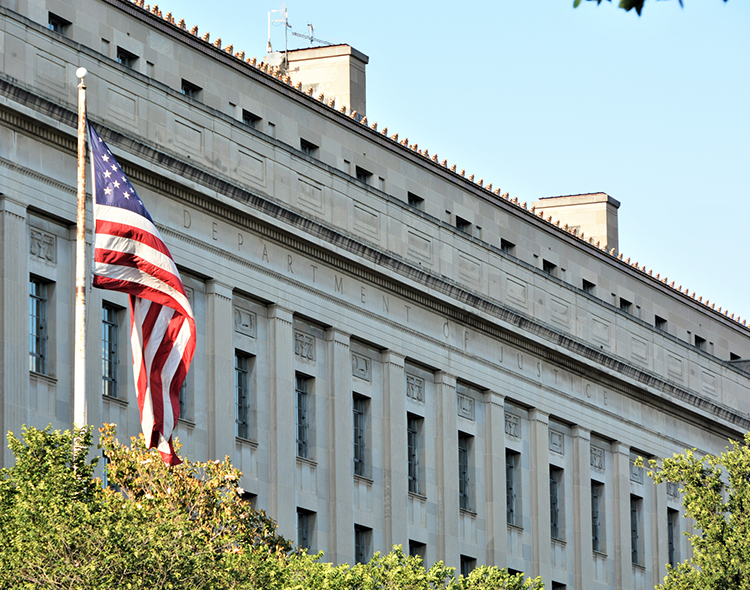

On February 5, 2025, newly confirmed Attorney General Pam Bondi issued a memorandum titled “Total Elimination of Cartels and Transnational Criminal Organizations” that shifted the Department of Justice’s priorities away from its typical commercial foreign bribery focus toward a more limited one involving “Cartels and Transnational Criminal Organizations (TCOs).”1 On the heels of the attorney general’s new guidance, on February 10, 2025, the White House issued Executive Order 14209, titled “Pausing Foreign Corrupt Practices Act Enforcement to Further American Economic and National Security.”2 The combined effect signals a new era of FCPA enforcement.
Attorney General Bondi’s new guidance prioritizes DOJ action targeting cartels and TCOs by providing additional resources to federal prosecutors combatting these entities. But the attorney general’s memo likewise minimizes the importance of “investigations and cases that do not involve” a cartel or TCO connection. This is a marked change from the types of cases typically handled by the Criminal Division’s Foreign Corrupt Practices Act Unit. For example, of the 24 FCPA-related enforcement actions initiated or announced by DOJ in 2024, none related to cartels or TCOs.3
The President’s Executive Order heralds an even more dramatic shift in FCPA enforcement. The Executive Order argues that the FCPA has been “stretched” and “abused” in a manner that harms U.S. interests by penalizing U.S. citizens and businesses for “routine business practices in other nations,” resulting in damage to American “economic competitiveness” and “national security.” It then directs the Attorney General, for 180 days, to:
The net effect of the President’s Executive Order and the attorney general’s memorandum is to radically de-emphasize the prosecution of corporate bribery of foreign officials. And while corporate bribery cases regarding oil and gas, health care, industrial goods, and technology have historically dominated the FCPA docket and have been the cornerstone of FCPA enforcement, the claim that such enforcement has harmed U.S. economic competitiveness and national security, and the new emphasis on counter-narcotics strategies, means that one can expect a different type of defendant, industry, and conduct to be the target for near-term future FCPA cases.
Untouched by the Executive Order or the attorney general’s memorandum, however, is any limitation on the Securities and Exchange Commission’s FCPA enforcement. This is significant, as the SEC has brought roughly one-third of all FCPA enforcement actions over the past 10 years.5 And, to date, Paul Atkins, President Trump’s nominee to chair the SEC, has not publicly commented on these latest changes concerning the FCPA or suggested any potential change in the SEC’s approach to FCPA matters.
In the face of these changing enforcement priorities, corporate counsel should exercise caution for several reasons. First, while the President and attorney general have plainly ushered in a new set of enforcement guidelines, there has been no change in the law. The FCPA remains on the books, and bribery of foreign officials, books and records violations, and internal control infractions remain illegal.6
Second, the SEC’s silence on this topic suggests (at least so far) that it has not altered its stance on FCPA violations. And since its enforcement represents approximately one-third of all FCPA enforcement, it provides a meaningful deterrent to potential FCPA wrongdoing.
Third, the FCPA’s statute of limitations is five or six years, depending on the violation.7 Because the limitations periods extend beyond President Trump’s term of office, a new administration, with potentially altered enforcement priorities, may chart a different course concerning potential violations.
Finally, there has been no change in other countries’ anti-corruption regimes or other U.S. anti-corruption statutes. Outside of the U.S., the UK Bribery Act, remains in effect and criminalizes a broad range of corrupt activity. Within the U.S., the newly enacted Foreign Extortion Prevention Technical Corrections Act, 18 U.S.C. § 1352 (“FEPA”), criminalizes the “demand side” of foreign bribery. And state bribery statutes continue to criminalize various wrongdoing.
While there is no doubt the current administration’s latest actions will alter today’s FCPA enforcement, companies should remain cautious and continue with existing compliance efforts. But companies should closely watch for any shift in the SEC’s enforcement and what new “guidance” the DOJ provides at the close of the 180-day review period. Such guidance could include potential changes on DOJ’s view regarding the FCPA’s jurisdictional reach; types of proper and improper payments; application of successor liability in the mergers and acquisitions context; and the hallmarks of an effective corporate compliance program.
Additional Assistance
For more information please contact Myles K. Bartley at (212) 508-0423 or mbartley@phillipslytle.com; any member of the Phillips Lytle White Collar Defense and Government Investigations Team; or the Phillips Lytle attorney with whom you have a relationship.
1 U.S. Att’y Gen. Mem., Total Elimination of Cartels and Transnational Criminal Organizations (Feb. 5, 2025), https://www.justice.gov/ag/media/1388546/dl?inline.
2 Exec. Order No. 14209, 90 Fed. Reg. 9587 (Feb. 10, 2025), https://www.whitehouse.gov/presidential-actions/2025/02/pausing-foreign-corrupt-practices-act-enforcement-to-further-american-economic-and-national-security/.
3 See U.S. Dep’t of Justice, Related Enforcement Actions: 2024, Chronological List, 2024, https://www.justice.gov/criminal/related-enforcement-actions-2024 (last visited Feb. 21, 2025).
4 The review period may be extended for an additional 180 days. Supra, note 1.
5 Compare U.S. Dep’t of Justice, Enforcement Actions, Chronological List (listing DOJ FCPA enforcement actions by year) https://www.justice.gov/criminal/criminal-fraud/enforcement-actions with Secs. & Exchange Comm., SEC Enforcement Actions: FCPA Cases (listing SEC FCPA enforcement actions by year), https://www.sec.gov/about/divisions-offices/division-enforcement/enforcement-topics-initiatives/sec-enforcement-actions-fcpa-cases (both last visited Feb. 21, 2025).
6 See 15 U.S.C. §§ 78dd-1 to 78dd-3.
7 18 U.S.C. § 3282 (statute of limitations for criminal violations is five years). 18 U.S.C. § 3301 (statute of limitations for “securities fraud” offenses is six years); 28 U.S.C. § 2462 (statute of limitations for civil fines is five years).
Receive firm communications, legal news and industry alerts delivered to your inbox.
Subscribe Now